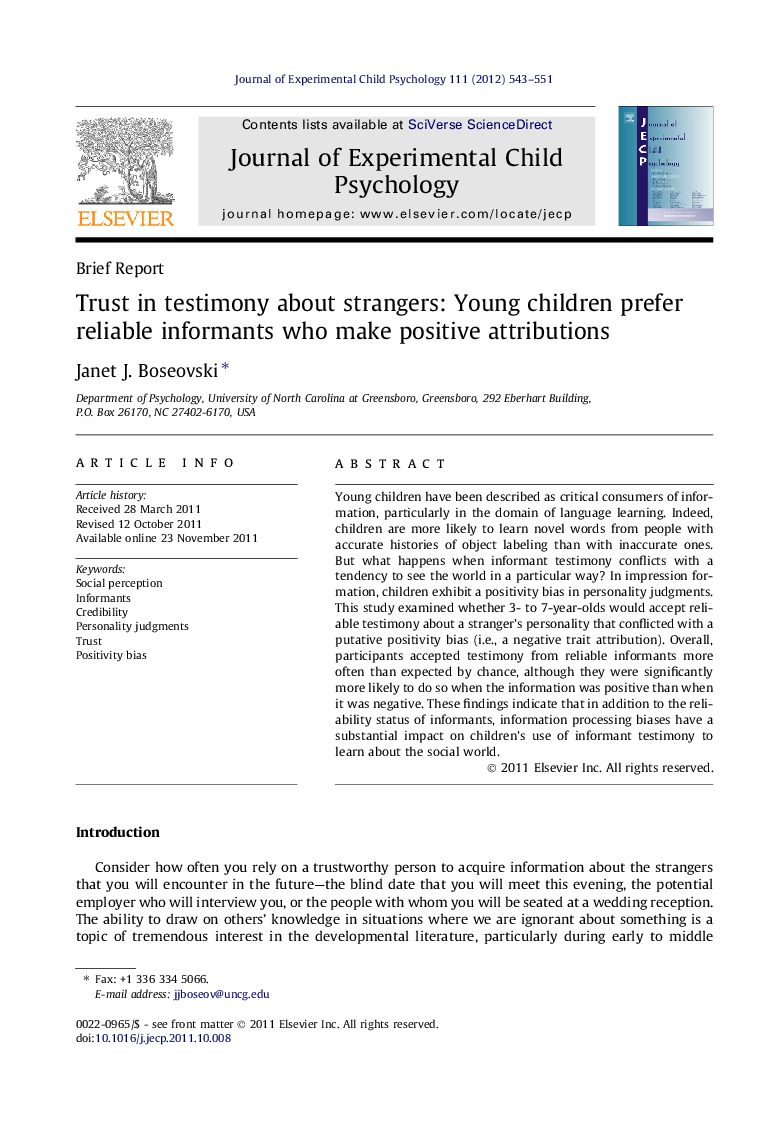| کد مقاله | کد نشریه | سال انتشار | مقاله انگلیسی | نسخه تمام متن |
|---|---|---|---|---|
| 918249 | 919465 | 2012 | 9 صفحه PDF | دانلود رایگان |

Young children have been described as critical consumers of information, particularly in the domain of language learning. Indeed, children are more likely to learn novel words from people with accurate histories of object labeling than with inaccurate ones. But what happens when informant testimony conflicts with a tendency to see the world in a particular way? In impression formation, children exhibit a positivity bias in personality judgments. This study examined whether 3- to 7-year-olds would accept reliable testimony about a stranger’s personality that conflicted with a putative positivity bias (i.e., a negative trait attribution). Overall, participants accepted testimony from reliable informants more often than expected by chance, although they were significantly more likely to do so when the information was positive than when it was negative. These findings indicate that in addition to the reliability status of informants, information processing biases have a substantial impact on children’s use of informant testimony to learn about the social world.
► Children’s willingness to accept testimony about a stranger’s personality was examined.
► A positivity bias may interfere with the use of informant testimony.
► Reliable and unreliable informants provided positive or negative testimony.
► Children accepted reliable testimony more when it was positive than negative.
► Social information processing biases affect the use of informant testimony.
Journal: Journal of Experimental Child Psychology - Volume 111, Issue 3, March 2012, Pages 543–551